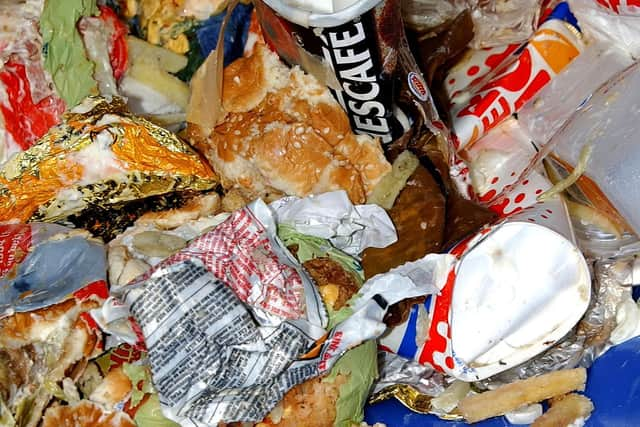One Rotary Northampton calls for residents to reduce food waste with support from county climate group
and live on Freeview channel 276
One Rotary Northampton is calling for residents to reduce food waste with support from a county climate group, this amidst aims to reduce our carbon footprint.
The effort comes after members of One Rotary Northampton attended last year's COP26 event in Glasgow that saw world leaders come together in order to tackle climate change and carbon emissions.
Advertisement
Hide AdAdvertisement
Hide AdBut Chris Davies, District 1070 environment officer from Rotary Club of Kimbolton Castle, said that he was concerned by the amount that terms like 'hope' were used, as opposed to 'action'.


Citing figures from Love Food Hate Waste, Chris said: "We are all united by food, but our food doesn’t just magically appear on the supermarket shelves. The time and resources used to make, grow, process, package, transport and cook our food is enormous.
"Despite this, in the UK alone, we waste 6.5 million tonnes of it every year, 4.5 million of which is edible. That's 38 million wheelie bins that could fill 90 Royal Albert Halls.
"That's the half a loaf of bread that could’ve been frozen and used another day, the potato peels that could be washed, seasoned, and roasted to make delicious crispy nibbles, or those apples that if stored in a fridge instead of in a fruit bowl on the worktop could’ve last two to three weeks longer.
Advertisement
Hide AdAdvertisement
Hide Ad"If global food waste were a country, it would be third largest emitter of greenhouse gases after China and the US.
"Food deserves to be eaten, not binned, and we should all be more mindful of this throughout the year, especially when you consider the amount of people relying on food banks right now."
Jane Wood, Chair of Climate Action - West Northamptonshire (CA-WN), agreed with One Rotary's campaign. She said that as consumers, we can make an impact on global emissions without making any massive changes to our lifestyles.
She also highlighted that the culture of businesses and their customers' expectations are leading to a lot of wasted food and thus more CO2.
Advertisement
Hide AdAdvertisement
Hide AdThe chair said: "I think that people need to give more thought to how much food we buy and what for. There may be 'buy one, get one free' offers out there, but are we likely to eat all of that, or will it end up in the bin?
"A large part of it as well is our, perhaps unreasonable, expectation that supermarkets be constantly stocked with every kind of item we could want. This leads to a lot of perishable goods like bread being thrown out after they've gone off from sitting on the shelves too long.
"We may want to start curbing our expectations to save unnecessary wastage.
"There's also the issue of 'sell by' and 'use by' dates. Morrisons has recently removed these from their milk and encouraged people to use their senses, like smell, to see if the milk is actually off.
Advertisement
Hide AdAdvertisement
Hide Ad"I totally support this because people will often throw away perfectly useable food just because it's past its 'use by' date. While you should be cautious of eating a fish that's a week out of date, vegetables are safe for much longer than you might think."
The chair also encouraged consumers to plan their meals out in advance, to prioritise eating food that might soon go off and to value food that lots of people have worked to get to our tables.
Anyone who is interested can visit the Love Food Hate Waste website, which gives practical advice on how to make your meals go further.